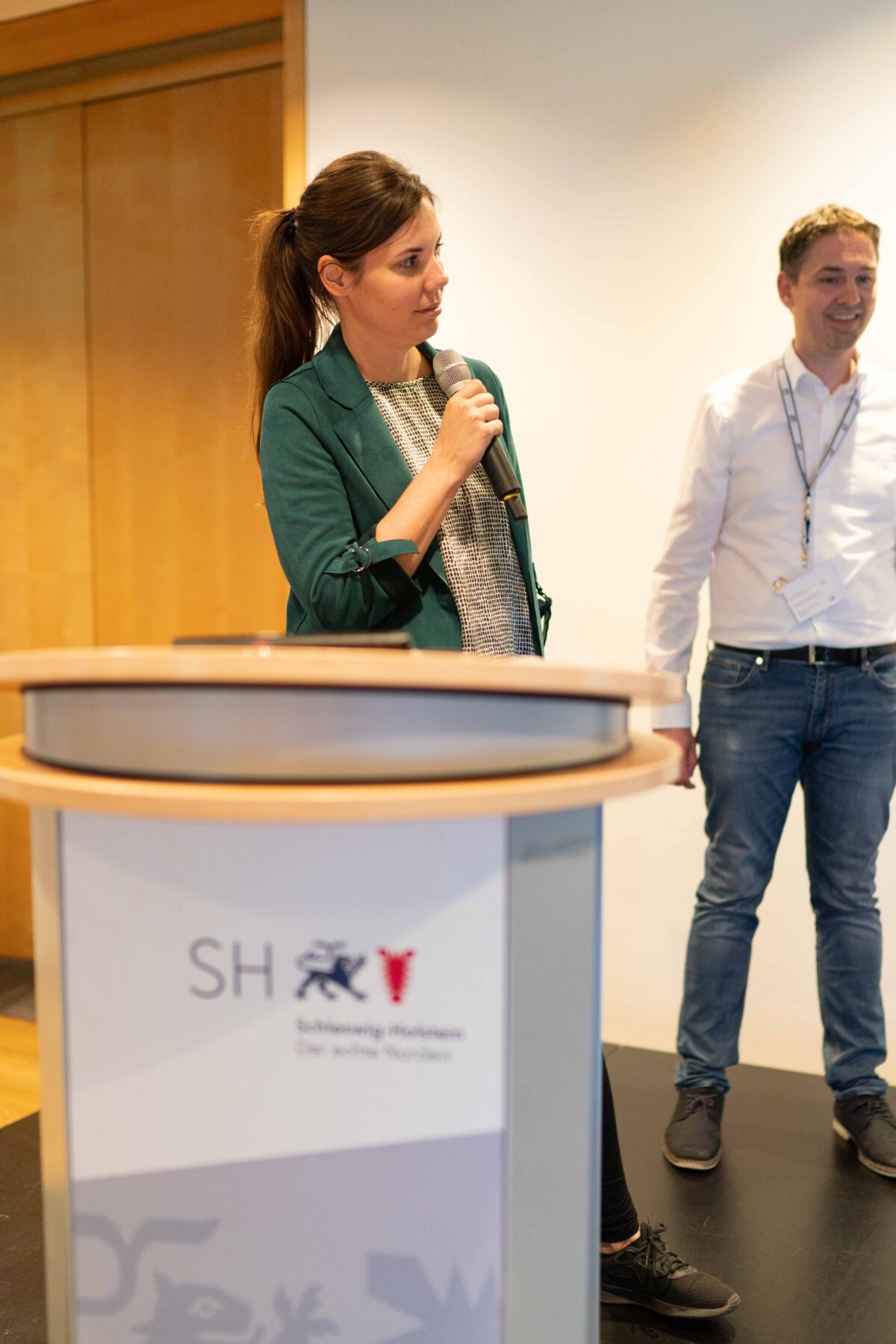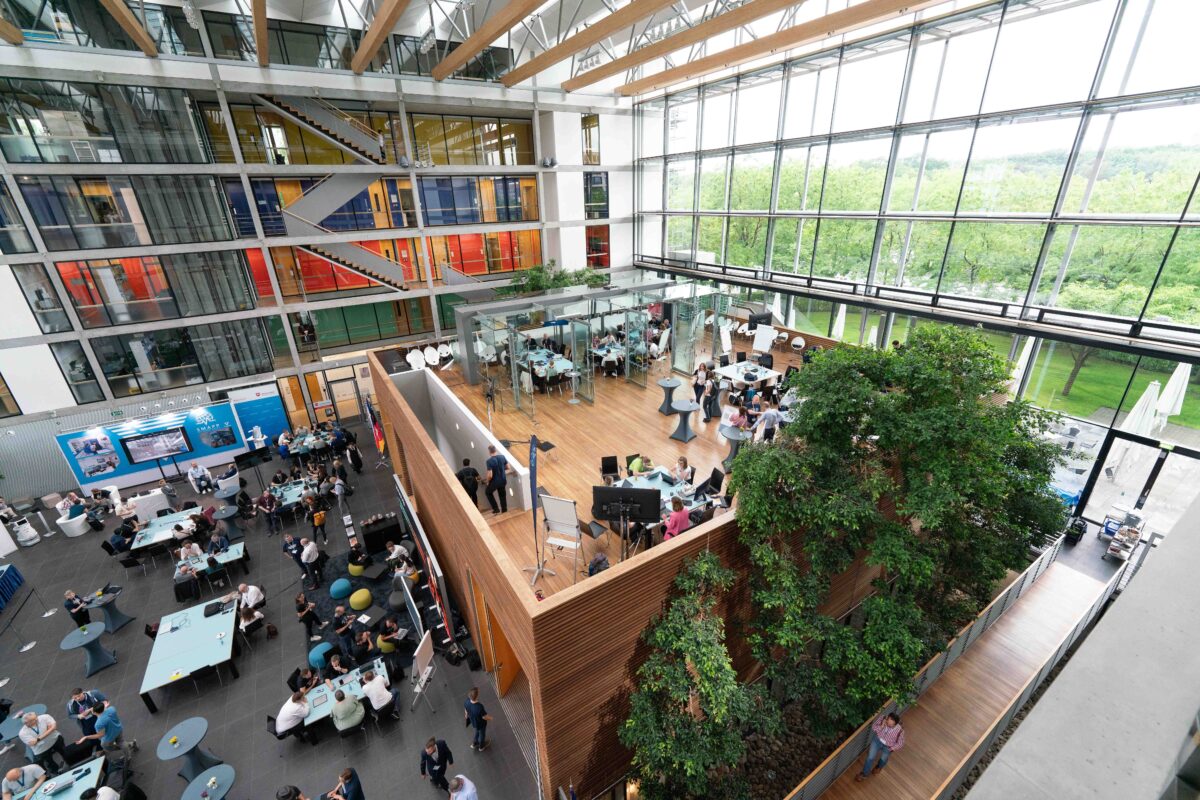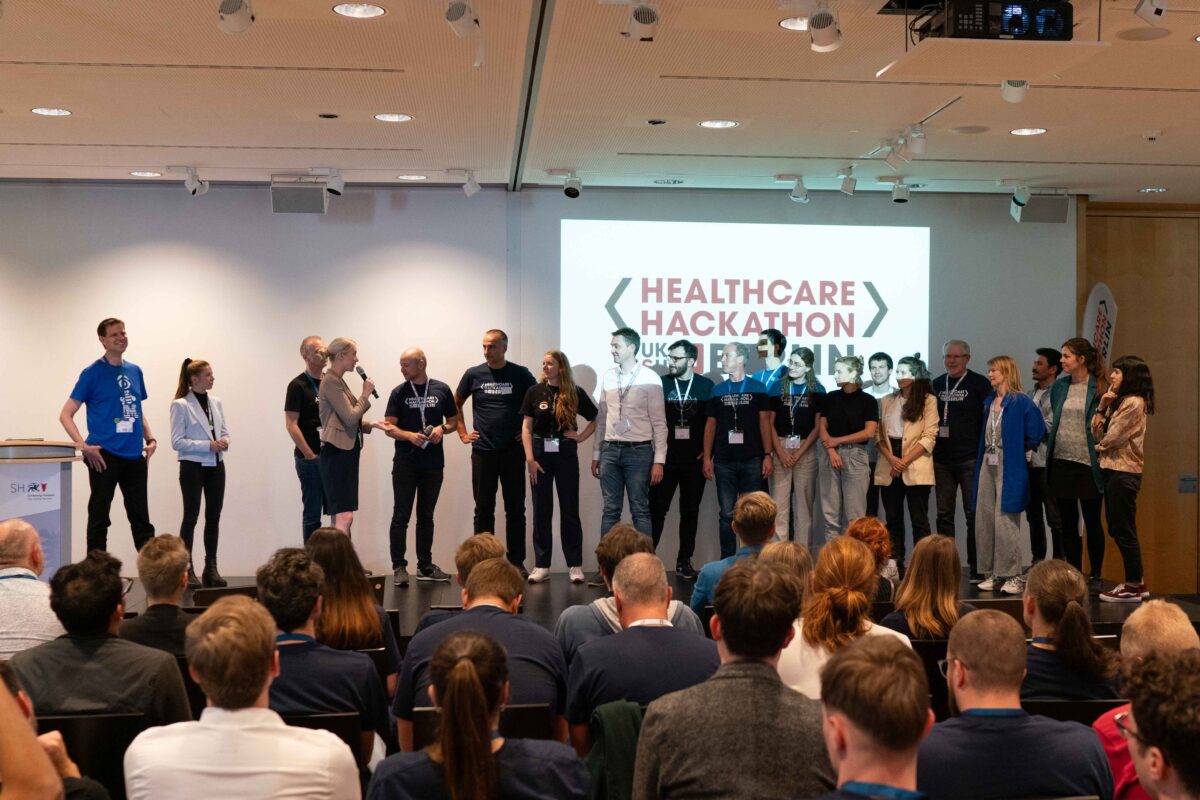Upskilling instead of Deskilling
- Topics: Artificial Intelligence, Health, Education, and New Work
- Key Actors: Junior Doctors
- Outputs: Product Vision, UX-Concept, and UX Flow
- Event: Healthcare Hackathon in Berlin (UKSH)
- Timespan: May 2024
How can design research shape the use of AI in healthcare in such a way that it not only imparts knowledge, but also strengthens the confidence and skills of medical residents?
Skilly – The AI agent for prospective medical specialists
At the Health Hackathon Berlin, our experts from KITE developed the prototype of the health app Skilly in an interdisciplinary team in less than 24 hours. This innovative application was specially designed for junior doctors to support them in their challenging day-to-day clinical work and to make their further training more efficient.
Under the motto "upskilling instead of deskilling", Skilly aims to integrate theoretical learning directly into everyday working life. The AI agent enables doctors to ask questions about real patient cases and receive individual, guideline-based support, adapted to the respective level of knowledge. With secure access to patient records and the latest medical guidelines, Skilly ensures that knowledge is up to date and directly applicable while ensuring that practitioners' skills are further enhanced.
Our contribution

The development of Skilly was significantly influenced by users. Key requirements and needs were identified in five ad hoc interviews with junior doctors at the University Hospital of Würzburg
- Case-based learning in everyday life: junior doctors need learning methods that can be seamlessly integrated into their everyday clinical practice. Theoretical knowledge must be conveyed in a practical and efficient manner, as extensive guidelines are often difficult to digest and time-consuming.
- Efficiency through AI-supported support: Senior physicians are usually the first point of contact, but are often under considerable time pressure. Skilly relieves this pressure by providing targeted support for specific questions, creating more space for high-quality work.
- Personalized knowledge transfer: Although existing AI solutions such as ChatGPT offer quick access to information, they often lack the ability to adapt to the user's level of knowledge. Skilly addresses this problem by providing personalized answers based on the user's individual knowledge.
Results and outlook

The prototypes and concepts developed during the hackathon were successfully tested and provided valuable insights for the further development of Skilly. Our approach shows how interdisciplinary collaboration and human-centered design strategies can create innovative solutions for complex challenges in the medical environment.
Skilly is an example of forward-looking technologies that sustainably improve everyday clinical practice and make doctors' training more efficient. The further development of this platform could not only optimize learning in the workplace, but also make a decisive contribution to improving patient care.
KITE is interested in co-developing concepts such as Skilly to ensure that the user experience is appropriate for the dynamic medical environment.
The hackathon team

An interdisciplinary team of developers, doctors and designers worked on the project:
- Prof. Dr. med. Alexander Hann, Ioannis Kafetzis snd Joel Troya Sebastian from Uniklinikum Würzburg as a source of ideas and initiator of the topic
- Anne Wohlauf, Iva Karabatic and Marie Beuthel from KITE Design Research GmbH
- Julian Hugo from Tiplu GmbH
- Daniela Hery from Fraunhofer IESE
- and Natalie Hess, Nina Scheizel, Magda Lena Altmann, Abror Islomov, Jan Mechtel, Andreas Eberhard, Christian Fink, Roman Spendler and more
